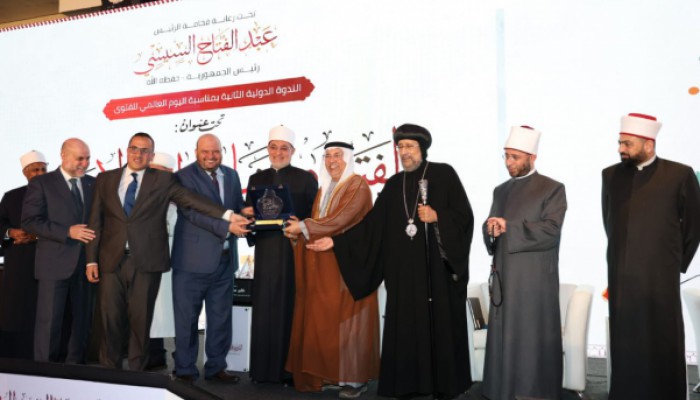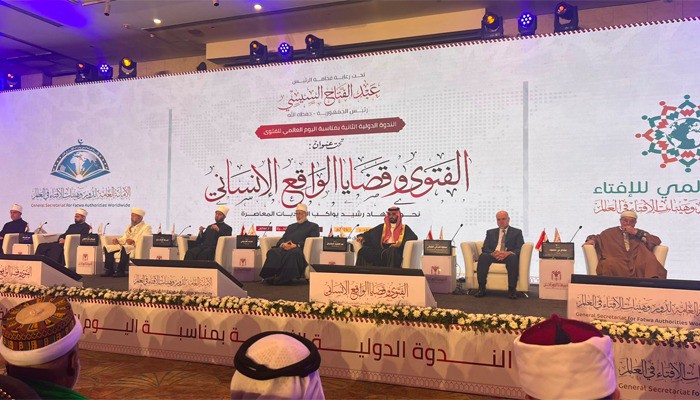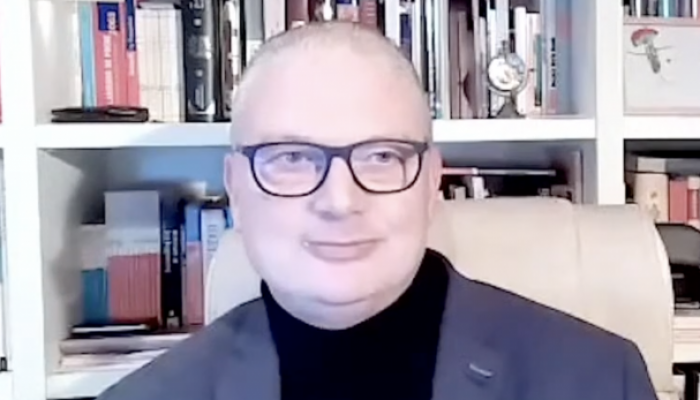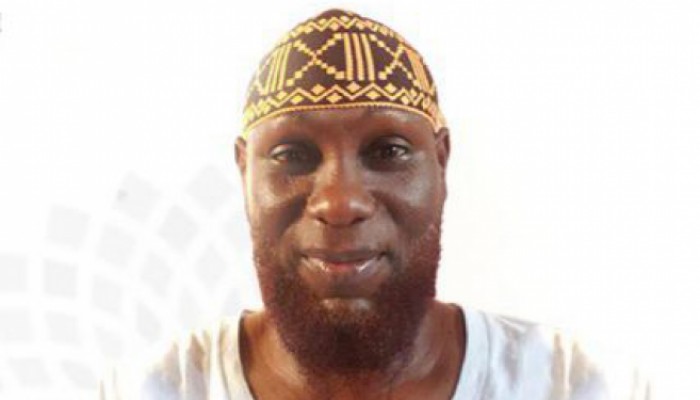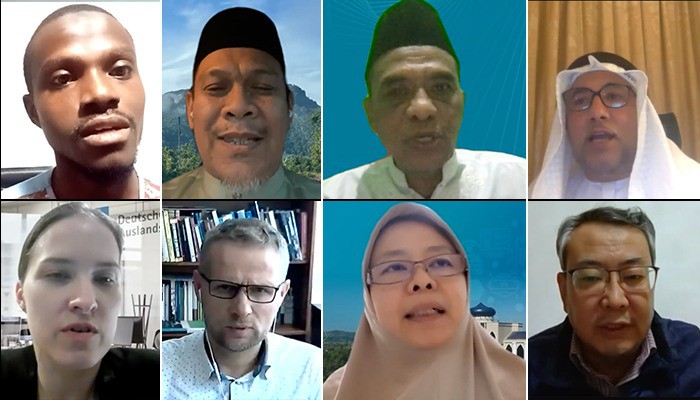
TWMCC Organises a Virtual Symposium Entitled "Global Networks of Halal Food and Their Societal Impact"*
- 2022-Nov-08
The World Muslim Communities Council organised a virtual symposium entitled "Global Networks of Halal Food and Their Societal Impact", on Sunday, November 6, 2022.
The symposium witnessed the participation of several figures interested in the halal food file.
HE Dr Mohammed Bechari, Secretary-General of TWMCC; Prof. Ir. Sukoso, MSc, PhD, former Head of the BPJPH, Ministry of Religious Affairs, Indonesia; Dr Sukree Longputeh, Deputy Rector of Fatoni University, Thailand; Dr Adlin Masood, Senior Fellow, Faculty of Economics and Muamalat, Universiti Sains Islam Malaysia; and Dr Saroja Dorairajoo, Professor of Anthropology, Yunnan University, China; participated in the symposium.
Prof. Wang Yongbao, North West University of Law and Politics, China; Dr Konrad Tomasz Pędziwiatr, Senior researcher at the Center for Advanced Studies of Population and Religion and Professor in the Department of International Affairs of the Cracow; Dr Eva Langerbeck, Deputy Executive Director, Malaysian-German Chamber of Commerce and Industry, Malaysia; Dr Soha, Director of Halal Industry and Islamic Institutes in Brazil; Mohammed Noor, the Founder & CEO of HalalTradeZone, Turkey; and Dr Alina Abdul Rahim, Associate professor, Faculty of Science and Technology, Universiti Sains Islam Malaysia; also attended the symposium.
On his part, HE Dr Mohammed Bechari, Secretary-General of TWMCC, said that the halal industry had become a sizeable commercial volume in the five continents. It had moved from the field of eating halal meat only to become a broader commercial field than just eating halal meat.
HE added that the Islamic jurisprudential opinion works to overcome the difficulties for the Muslim consumer to reconcile between necessity and adherence to the law of God, stressing that the World Council of Muslim Communities communicates with many institutions that work in the halal industry and pays great attention to this issue.
The Secretary-General of TWMCC indicated that the Council seeks, through this symposium, to spread and strengthen the halal culture, following specific goals that enable institutions working in this field to fulfil their responsibilities. The Council seeks to share the experiences of the halal industry and networking relations between its employees and work to develop them.
Meanwhile, Prof. Ir. Sukoso, MSc, PhD, former Head of the BPJPH, Ministry of Religious Affairs, Indonesia, said that most of the population of Indonesia are Muslims. The government focuses on halal products, and the Indonesian constitution stipulates that the government guarantee the citizen to embrace the appropriate religion for him.
According to Prof. Sokoso, food experts and university professors discovered in 1998 that some ingredients were being added to food. This prompted the government to invite NGOs to create food monitoring and monitoring agencies to calm a community's anger at processed foods.
He added that Parliament obligated the government to issue certificates for products entering Indonesia, and the state committed in 2017 to establish institutes and agencies to issue certificates for halal food. These agencies began issuing halal food certificates in 2019, and since then, it has become All food products must have a halal certification.
In the same context, Dr Sukree Longputeh, Deputy Rector of Fatoni University, Thailand, explained that although Thailand is a Buddhist country, we have halal food. In Thailand, there is a famous local meal that can be eaten anywhere in the world. That meal is Islamic and halal, contributing to halal Thai food promotion.
Dr Sukree said that the presence of halal meals in Thailand makes us able to attract Muslims and promote halal tourism in our country, as the government is trying to show Thailand as a home for halal food to attract more Muslims. Arab tourists and halal certification enable local halal food and halal products in Thailand to be Within reach of everyone.
On his part, Dr Adlin Masood, Senior Fellow, Faculty of Economics and Muamalat, Universiti Sains Islam Malaysia, said that the value of the commercial volume of halal food is USD1.27 billion and could increase to one trillion dollars. It is expected that the halal trade will grow during the coming period by 3.31% and reach about USD2.4 trillion.
Dr Masoud added that these figures illustrate the high credibility of halal products among citizens, noting that one-third of the world includes Muslim youth who have knowledge of technology and lead the halal industry. He explained that due to wars and the Covid-19 pandemic, developing and non-developing countries were affected, which threatened the food industry, especially halal.
Meanwhile, Dr Saroja Dorairajoo, Professor of Anthropology Yunnan University, China, said that Islam supports a healthy life and emphasizes that a healthy body resides in a healthy mind and that the challenges the world is currently facing make us need a better humanity.
Dr Dorerago added that by looking at the Holy Qur'an, we would find specific directions regarding the food that is best for humans. Forbidden food is the opposite of halal food, and we should focus on the concept of "good" because "good" is the general and comprehensive concept of halal. Soft drinks are halal but not good for the human body.
He explained that the Holy Qur'an not only talked about halal but linked halal to good. Its verses emphasized that food should be "halal and good."
On his part, Prof. Wang Yongbao, North West University of Law and Politics, China, stressed that China is a civilized country with many cultures and everyone lives in harmony and harmony, and Islam reached China by peaceful means.
Prof. Yongbao clarified that the Islam that originated in the Arabian Peninsula is not the Islam that arrived in China because when Islam came to China, it was presented differently from other regions.
He added that halal food in China has a great connection to history, the political movement in China, and everything that includes halal food.
Meanwhile, Dr Konrad Tomasz Pędziwiatr, Senior researcher at the Center for Advanced Studies of Population and Religion and Professor in the Department of International Affairs of the Cracow, said that Muslims are a minority in Poland, despite that it is one of the largest exporters of halal food in the world.
Dr Tomasz added that the growth of the halal market in the world paved the way for certification agencies. Halal food introduces Islam to Western society, pointing out that European political parties, especially the extreme right, politicize food matters to serve their causes. All this paved the way for conspiracy-based rumours.
While Dr Eva Langerbeck, Deputy Executive Director, Malaysian-German Chamber of Commerce and Industry, Malaysia, explained that there are many challenges facing consumers in searching for halal food, and the word halal is sometimes abused in Western Europe by the government. Halal slaughter in those countries is prohibited, and food is imported from neighbouring countries.
She added that Germany has a clear structure and mechanism for the halal slaughter process, and there are many halal food-producing bodies in Germany. These institutions and bodies have high-quality standards, which helps them export their products to Austria and other countries.
On her part, Dr Soha, Director of the Halal Industry and Islamic Institutes in Brazil said that Brazil is one of the largest exporters of halal protein in the world, and we are working to meet the requirements of halal food and focus on food quality.
She added that Brazil is working to implement halal-good in all companies licensed to produce halal in Brazil and food safety. Halal-good and quality are the top priorities of the work, and they have the vision to expand significantly in the provision of halal products to Muslims in All countries of the world.
Meanwhile, Mohammed Noor, the Founder & CEO of HalalTradeZone, Turkey, stated that the halal industry is facing many challenges throughout the world, among which is the difficulty in shipping these products and their quality and working to resolve these challenges and develop the industry as a whole.
Noor added that Islamic societies encourage the halal industry and provide the appropriate atmosphere. They have new licenses for facilities and centres to manufacture halal products that will be announced during the coming period, indicating that they are talking with governments regarding the halal industry to develop cooperation with them in the field of economy.
At the end of the symposium, Dr Alina Abdul Rahim, Associate professor, Faculty of Science and Technology, Universiti Sains Islam Malaysia, said that the focus is on activating the halal food sector by issuing the necessary licenses.
Dr Abdel Rahim added that they had conducted scientific research to help governments license halal foods, especially since there are many challenges in Europe around halal food. We hope to resolve the conflict with animal rights associations.
She explained that the Holy Qur'an and Prophetic hadiths must be followed when choosing food.
It is noteworthy that the World Muslim Communities Council is an international non-governmental organisation established on May 8, 2018, based in Abu Dhabi and includes more than 900 Islamic organisations and institutions from 142 countries. It is considered a house of expertise for rationalising organisations and associations operating in Muslim societies, renewing their thinking, improving their performance, and coordinating among them.




